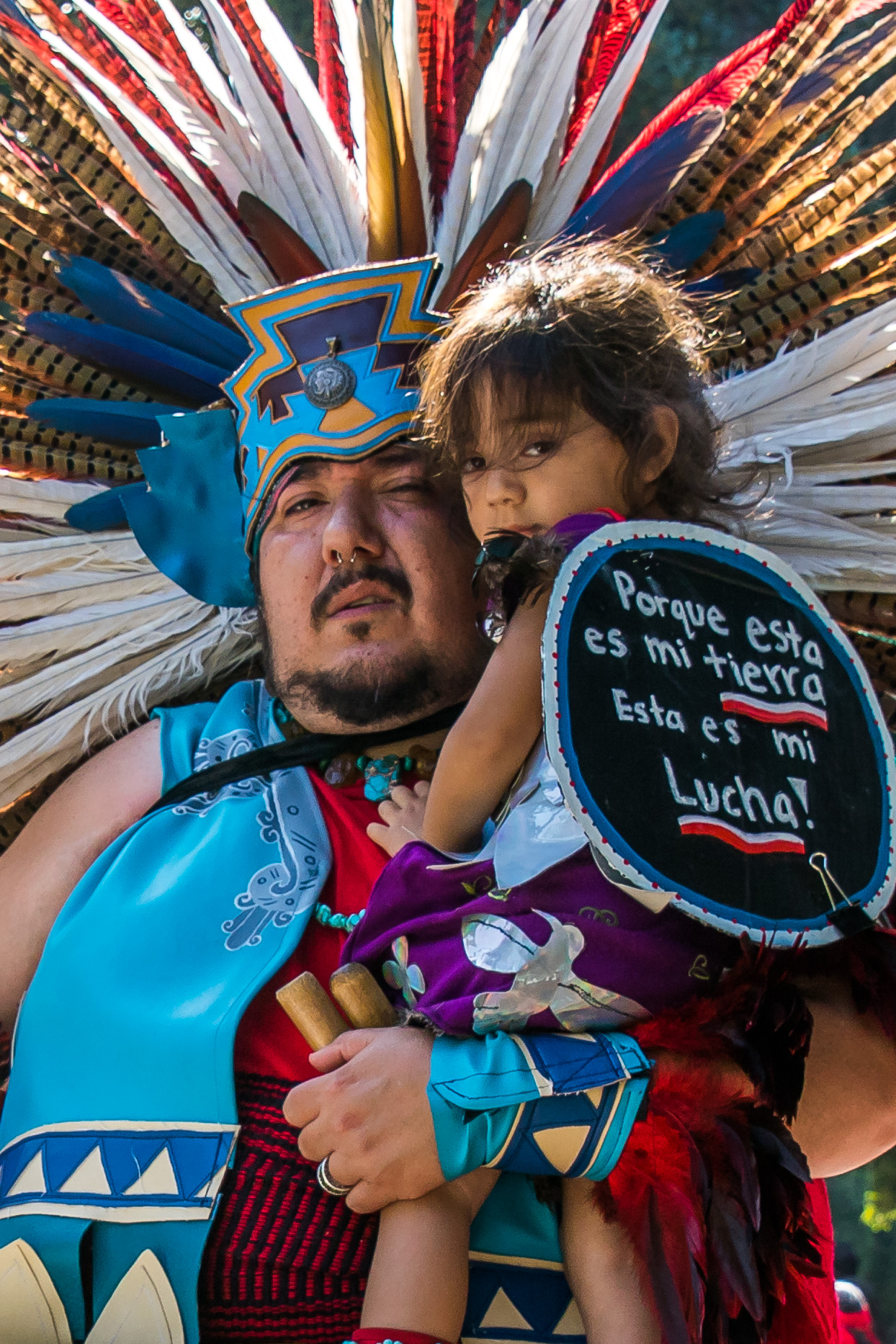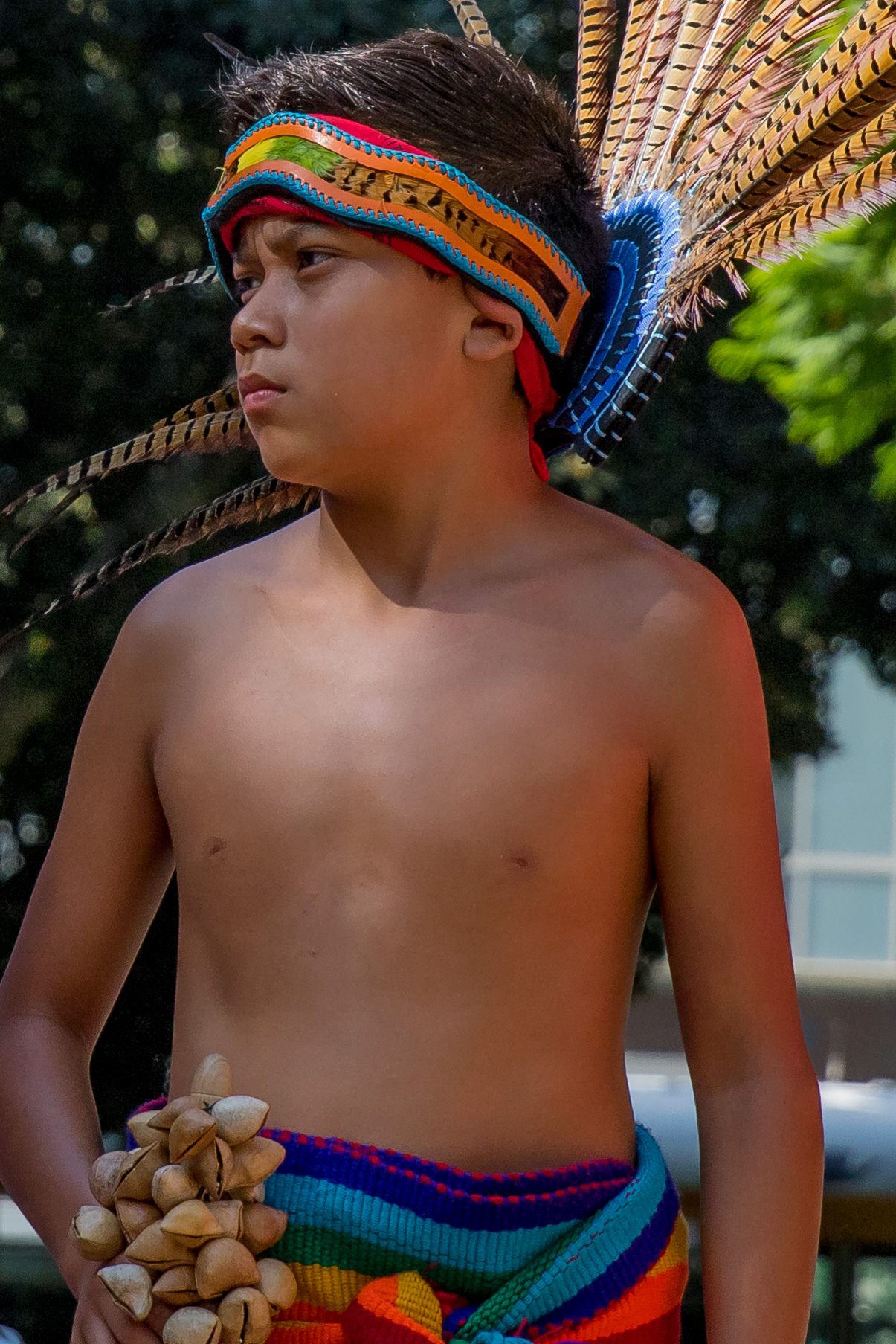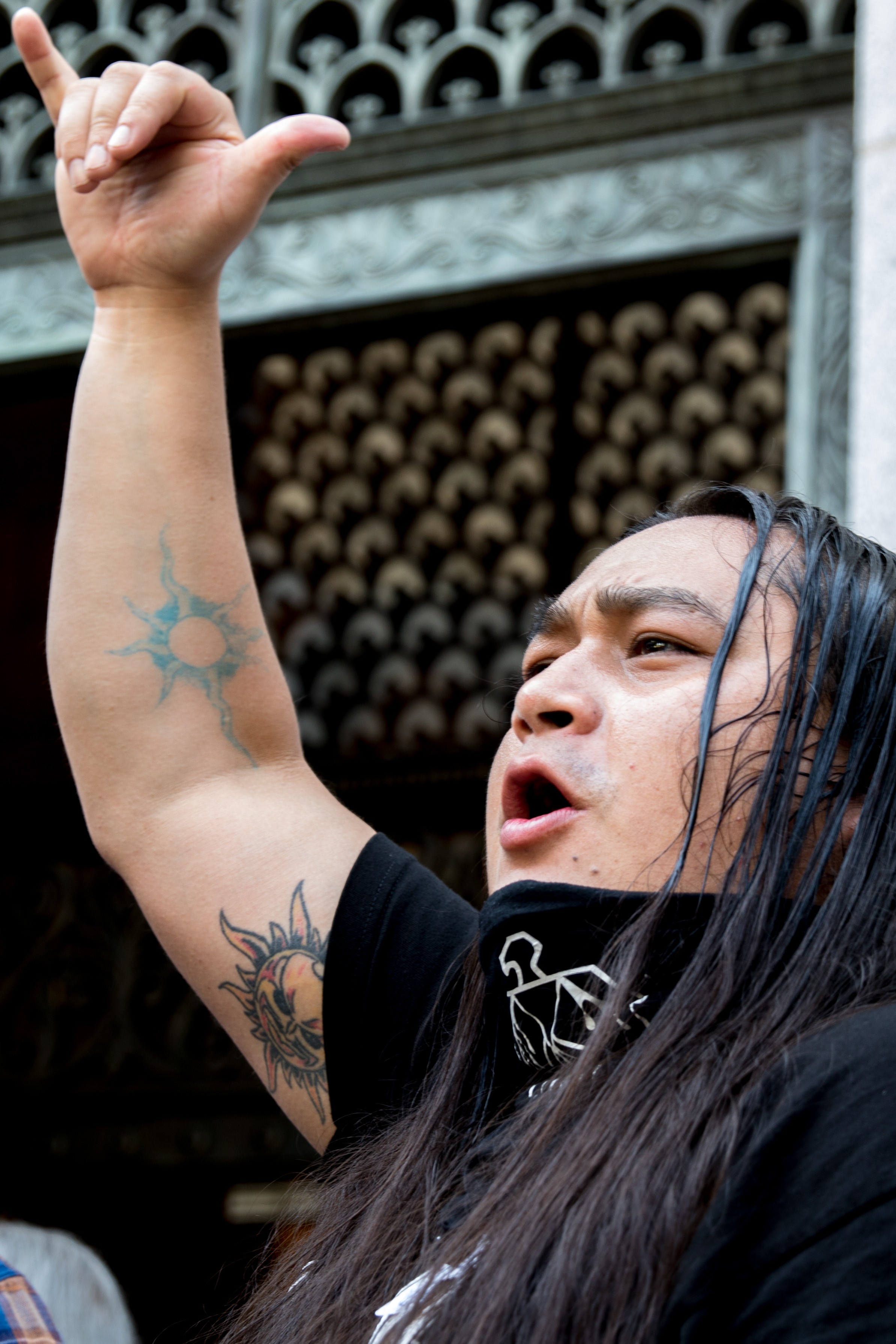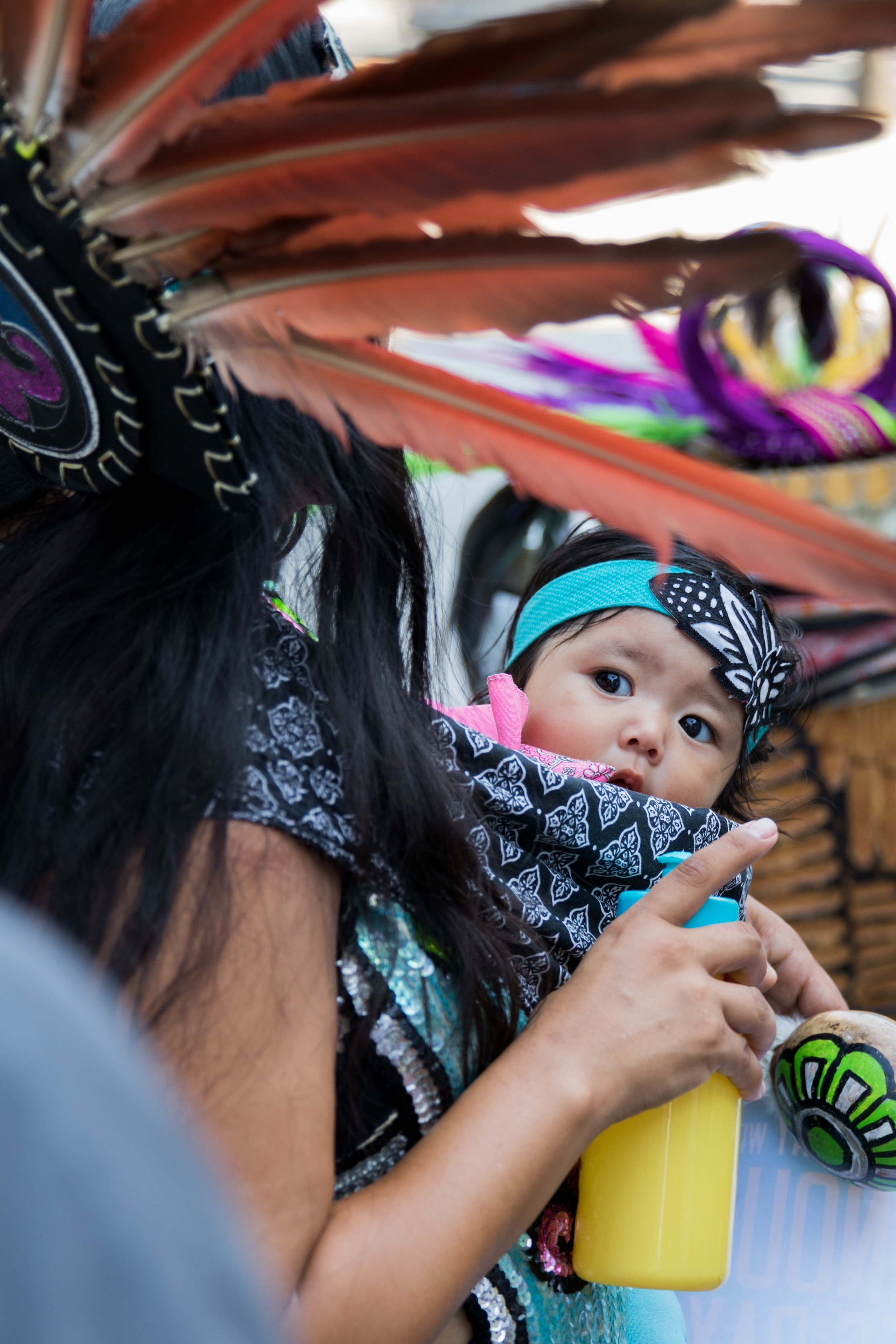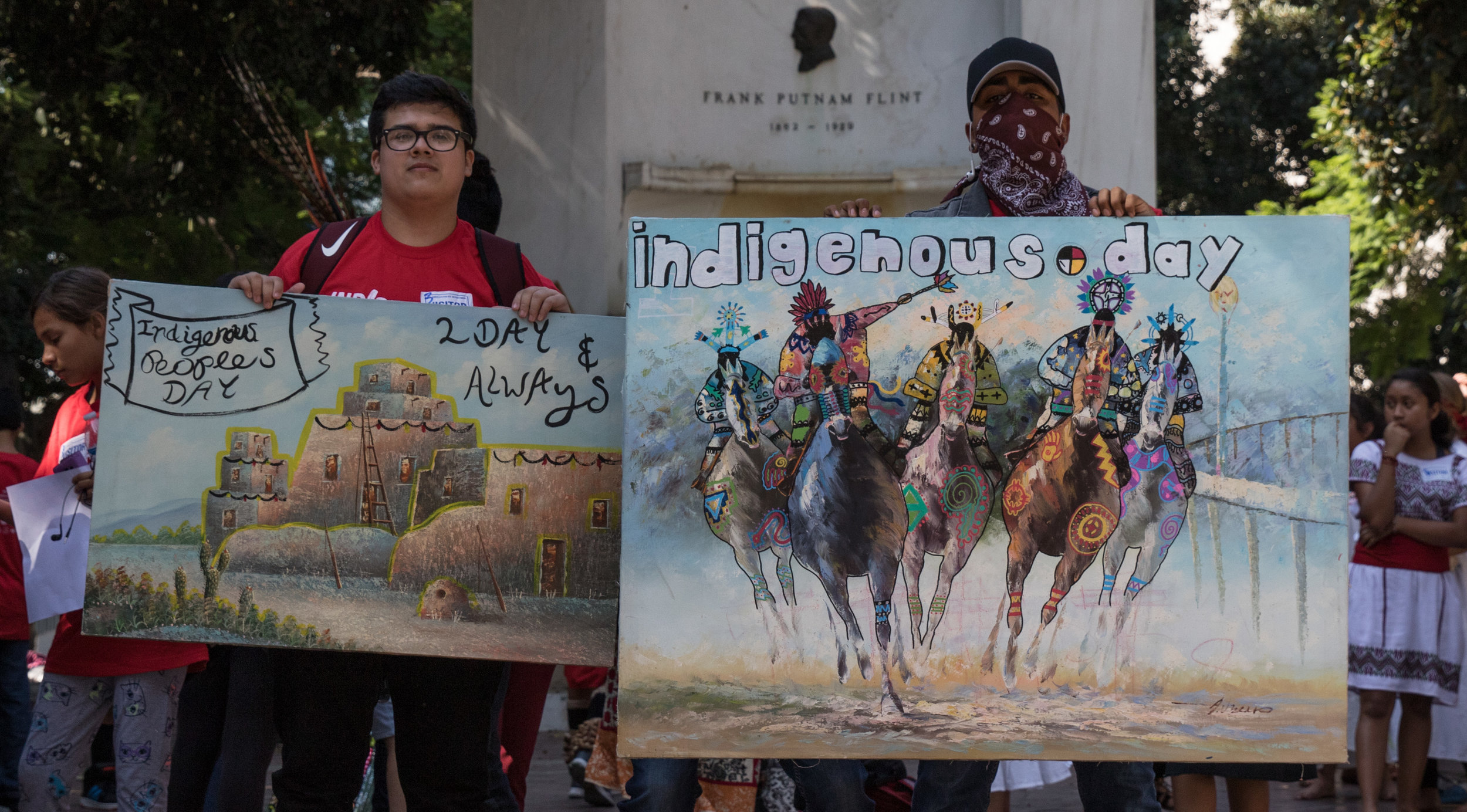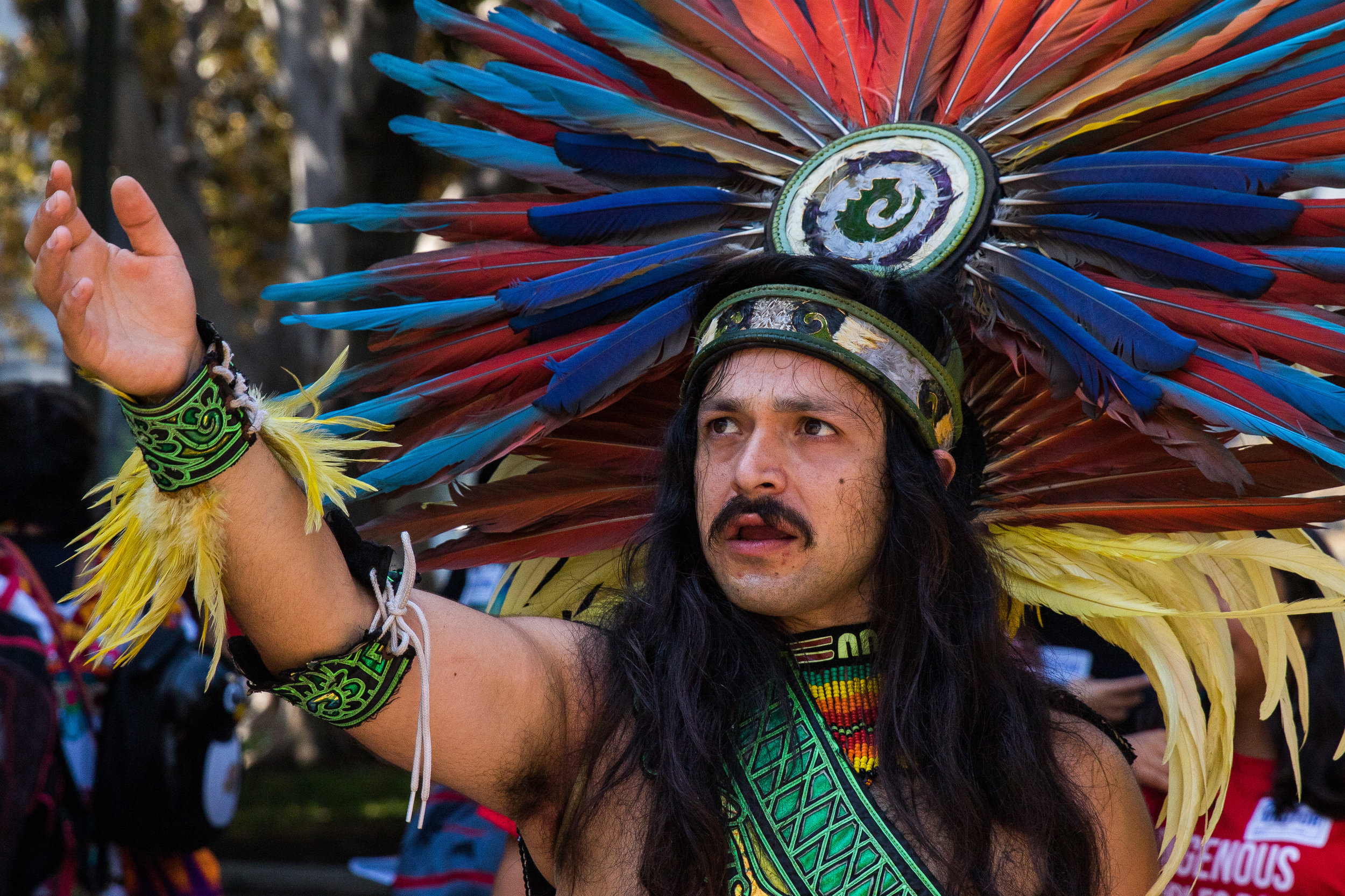Indigenous Peoples Day Makes History
On Wednesday, August 30th, 2017, history was made as Los Angeles City Council Members voted 14-1 to remove Columbus Day from the city's calendar and replace it with Indigenous Peoples Day. The meeting was scheduled for 10 a.m at City Hall in Downtown Los Angeles. A crowd of people gathered outside to hear City Council Member Mitch O’Farrell speak. Native Americans came out in traditional clothing such as jewelry and footwear. Their presence was strongly felt. Some carried homemade signs and various tribal symbols.
During his speech, O’Farrell, a member of the Wyandotte Nation Tribe, denounced Columbus Day calling it “the greatest genocide known in world history.” He spoke of the time and preparation that went into arriving at this point, thanking everyone who helped along the way saying, “We have the spirits behind us; We have history behind us, and we will no longer stand for revisionist thinking.” There was a ceremonial prayer before everyone went inside to watch a tribal dance before the hearing. The dance was performed by Native Americans in tribal clothing who gathered in a circle, moving in coordination while using their instruments to create music.
After the dance everyone gathered into the chambers for the hearing. During the meeting, opposing sides spoke against removing Columbus Day. There were a select group of people who addressed the panel expressing their concerns, one of which were Italian-American immigrants. They pleaded with the panel to not remove the holiday because in doing so would take away their history and what they have contributed to American culture. After the opposition spoke Native Americans addressed the panel with their concerns as well. High suicide rates, trauma and concern for their youth were expressed to the panel. There was heckling and obscenity going on during the meeting between both sides creating minor disruptions. Italian American Councilman, Joe Buscaino, proposed that August 9th be declared Indigenous Peoples Day, stating that the City of Los Angeles should follow the United Nation’s lead. The Native Americans unanimously rejected that proposal.
When the final votes were in, Native Americans cheered in celebration of the decision. The crowd gathered outside chanting and singing praises to their ancestors, forming a circle and holding hands as they danced in celebration. Onlookers joined in as Native Americans danced around in a circle, holding hands and moving about. There were several interviews and speeches given as the crowd rejoiced. Children were smiling and laughing while rituals were being conducted and everyone was engaging.
The event at City Hall proved to be fruitful for O'Farrell and the Native American community. The change to the city's calendar undoubtedly marks an important milestone in the history of Los Angeles and the Indigenous people. The rally showcased the power of an organized effort to make change in the community.


